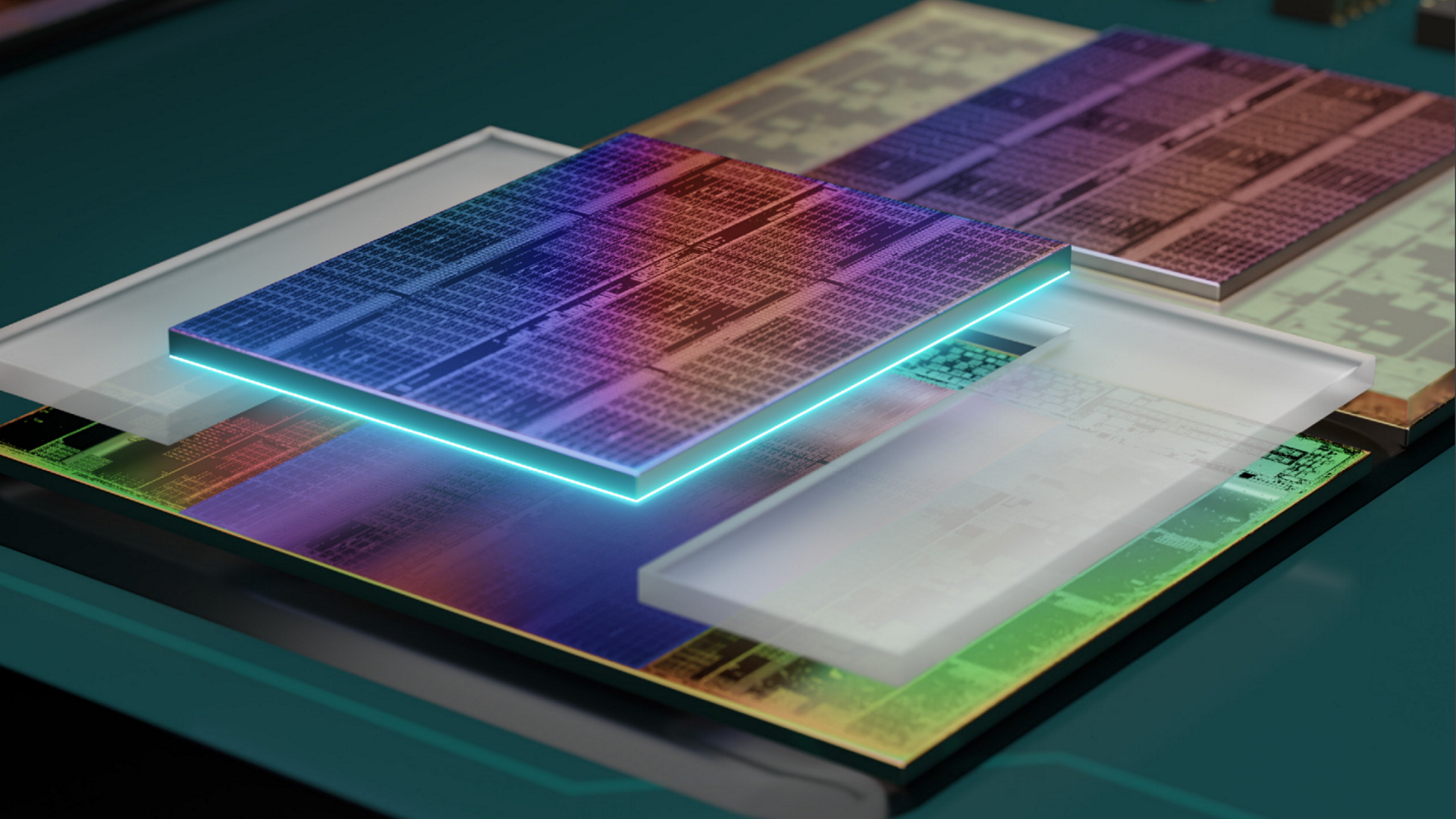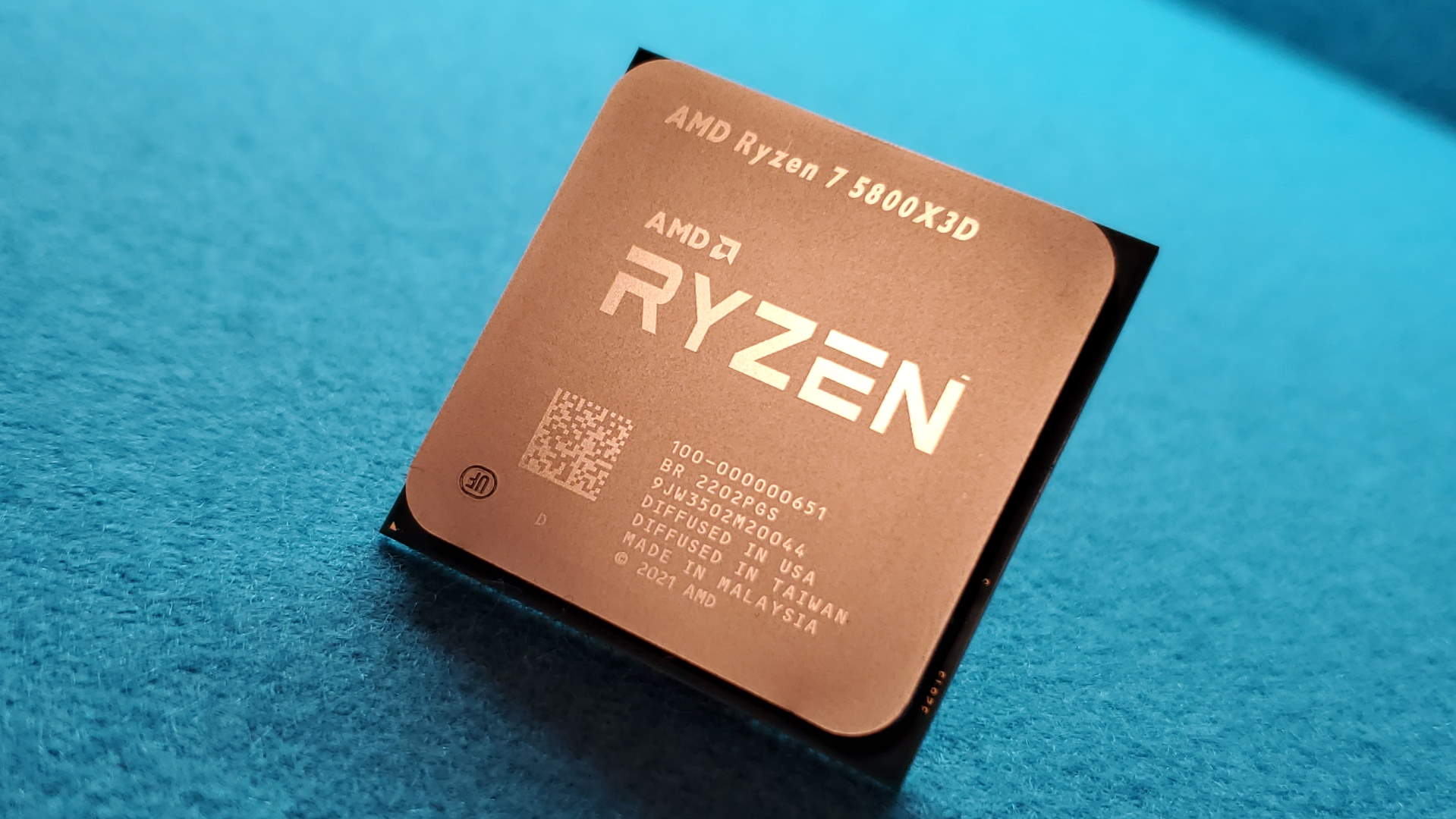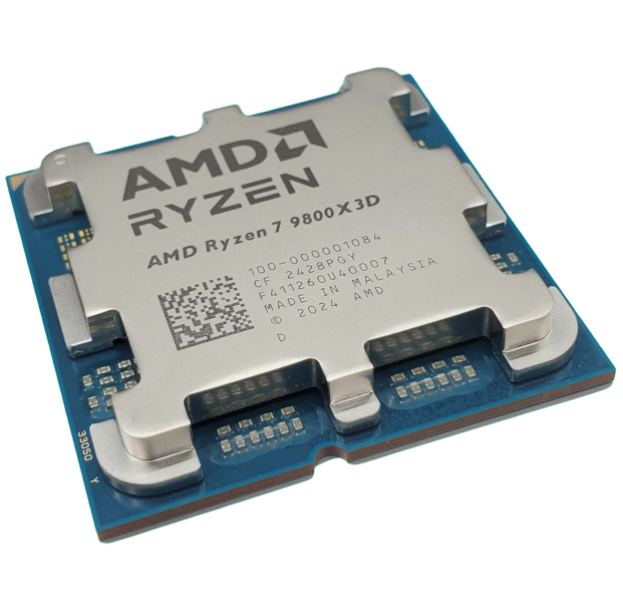Technology IP firm files lawsuits against AMD for 'its extensive and unauthorized use of our semiconductor portfolio,' citing the move as a 'business highlight'
It might be TSMC's tech being used, but it's AMD that's getting the blame.

For PC gamers, AMD's Ryzen chips are the processors of choice, but they're also hot stuff for servers, workstations, and all kinds of portable devices. It's not just the power of the Zen architecture that makes them so good; it's the use of chiplets, 3D V-Cache, and how they're all connected that makes them the best CPUs around. However, a technology licensing firm is now claiming that AMD's designs have been achieved thanks to its patented ideas, and it's suing the chip giant for "its extensive and unauthorized use of [the firm's] semiconductor portfolio."
The company in question is Adeia, and it announced the lawsuits in a recent press release. Technology licensing isn't something new, of course, and it's been around for as long as chips have. The same is true of intellectual property (IP) lawsuits, but there are a few things that make this move more newsworthy than others.
Adeia is claiming that "AMD infringes ten patents from Adeia's semiconductor intellectual property (IP) portfolio—seven patents covering hybrid bonding technology and three patents covering advanced process node technology." An example of one such patent can be read here, filed in 2018 and granted in 2020.
That's for a '3D processor,' where different types of chips can be formed by layering various dies in a stack. One die might be nothing but cache, or it could contain all of the input/output (IO) circuitry. If that sounds a bit familiar, then you'd be right, as that's exactly how AMD's Ryzen X3D chips are built: a Level 3 cache die is stacked on top of or underneath the main core complex die (CCD).
AMD's first implementation of this was the Ryzen 7 5800X3D, announced in March 2022 and launched a month later. So-called hybrid bonding is key to making it work, and while TMSC is responsible for manufacturing the dies and fully packaged chips, almost certainly using its SoIC service, Adeia is essentially targeting the end product and its producer, because it's the part of the whole chain that it's most likely to succeed at suing.

It claims that "[a]fter prolonged efforts to reach a mutually agreeable resolution without litigation, we believe this step was necessary to defend our intellectual property from AMD’s continued unauthorized use." Adeia doesn't specify how long it's been trying to arrange a licensing agreement with AMD, and the latter hasn't made any public statements about the lawsuits yet.
Adeia itself is a relatively new firm, founded in 2022, but its parent company, Xperi (which also owns TiVo and DTS), goes all the way back to 1990, when it was called Tessera. It developed chip packaging technologies, but rather than make processors and microcontrollers itself, the company made its money by licensing the tech to the semiconductor industry.
Keep up to date with the most important stories and the best deals, as picked by the PC Gamer team.
It's now Adeia that handles all of that for Xperi, as an independent business, and voraciously so. To the point where it genuinely sees the AMD lawsuit as being a 'business highlight', in a recent earnings announcement.
It will be interesting to see how these lawsuits pan out, because if they're successful, AMD may not only be forced to pay Adeia damages for the patent infringements, but it may also be required to license the IP firm's chip tech for all future Ryzen, Threadripper, and Epyc processors. Which will almost certainly mean an increase in prices.
However, I can't imagine for one moment that AMD will just sit back and let that happen, and its legal team will probably already have a counter-case lined up if Adeia has been trying to get AMD to play IP ball for many years. The most likely outcome is an out-of-court settlement, but even that will give AMD, Apple, Intel, Qualcomm, and many others pause for thought about future applications of hybrid bonding in their products.

1. Best overall:
AMD Ryzen 7 9800X3D
2. Best budget:
AMD Ryzen 5 7600X
3. Best mid-range:
AMD Ryzen 7 9700X
4. Best high-end:
AMD Ryzen 9 9950X3D
5. Best AM4 upgrade:
AMD Ryzen 7 5700X3D
6. Best CPU graphics:
AMD Ryzen 7 8700G

Nick, gaming, and computers all first met in the early 1980s. After leaving university, he became a physics and IT teacher and started writing about tech in the late 1990s. That resulted in him working with MadOnion to write the help files for 3DMark and PCMark. After a short stint working at Beyond3D.com, Nick joined Futuremark (MadOnion rebranded) full-time, as editor-in-chief for its PC gaming section, YouGamers. After the site shutdown, he became an engineering and computing lecturer for many years, but missed the writing bug. Cue four years at TechSpot.com covering everything and anything to do with tech and PCs. He freely admits to being far too obsessed with GPUs and open-world grindy RPGs, but who isn't these days?
You must confirm your public display name before commenting
Please logout and then login again, you will then be prompted to enter your display name.

